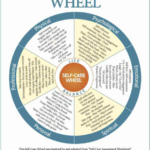The Importance of Perceptual Motor Programs in Child Development
Perceptual motor programs play a crucial role in the development of children, helping them to enhance their sensory and motor skills through structured activities and exercises. These programs focus on improving coordination, balance, spatial awareness, and overall physical abilities.
By engaging in perceptual motor activities, children can strengthen their cognitive functions, such as attention span, memory, problem-solving skills, and decision-making abilities. These programs also help children develop a better understanding of their bodies and how they interact with the environment around them.
One key benefit of perceptual motor programs is the promotion of physical fitness and overall well-being. By participating in activities that challenge their sensory and motor skills, children can improve their physical health and coordination while having fun and staying active.
Furthermore, perceptual motor programs can help children build confidence and self-esteem as they overcome challenges and achieve new milestones. These programs provide a safe and supportive environment for children to explore their capabilities and push themselves to reach new levels of achievement.
In conclusion, perceptual motor programs are essential for promoting holistic development in children. By incorporating these activities into educational settings and recreational programs, we can help children enhance their sensory-motor skills, cognitive abilities, physical fitness, and self-confidence. Investing in perceptual motor programs is investing in the future well-being of our children.
Top 5 Benefits of Perceptual Motor Programs for Children’s Development
- Improves coordination and motor skills
- Enhances cognitive functions like attention and problem-solving
- Promotes physical fitness and overall well-being
- Boosts confidence and self-esteem through achievement
- Provides a fun and engaging way for children to learn and develop
Challenges of Implementing Perceptual Motor Programs in Educational Settings
- May require specialized equipment or resources that some schools or organizations may not have access to.
- Not all children may respond well to structured perceptual motor activities, leading to disengagement or frustration.
- Some perceptual motor programs may focus more on physical skills development and less on cognitive or emotional aspects of child development.
- Implementation of perceptual motor programs may require additional time and effort from educators or caregivers, potentially impacting other areas of curriculum or programming.
Improves coordination and motor skills
Participating in a perceptual motor program offers the invaluable benefit of enhancing coordination and motor skills in individuals of all ages. Through structured activities and exercises tailored to target specific movements and sensory input, individuals can improve their ability to control and synchronize their movements effectively. This improvement not only supports physical development but also contributes to increased confidence and independence in daily tasks and activities. By focusing on refining coordination and motor skills, perceptual motor programs empower individuals to navigate the world with greater ease and precision, ultimately enriching their overall quality of life.
Enhances cognitive functions like attention and problem-solving
Participating in a perceptual motor program offers the invaluable benefit of enhancing cognitive functions, including attention and problem-solving skills. By engaging in structured activities that challenge sensory and motor abilities, individuals can improve their focus, concentration, and ability to solve complex problems. This cognitive development not only benefits participants within the program but also extends to other areas of their lives, improving their overall mental acuity and decision-making abilities.
Promotes physical fitness and overall well-being
One significant benefit of perceptual motor programs is their promotion of physical fitness and overall well-being in individuals. By engaging in structured activities that focus on enhancing sensory and motor skills, participants can improve their coordination, balance, and spatial awareness while staying active and having fun. These programs not only contribute to physical health but also support mental well-being by providing opportunities for exercise, movement, and exploration. Through perceptual motor programs, individuals can develop a strong foundation for a healthy lifestyle and cultivate a sense of overall wellness that extends beyond physical fitness.
Boosts confidence and self-esteem through achievement
Participating in perceptual motor programs can significantly boost confidence and self-esteem in individuals by providing opportunities for achievement. As individuals engage in activities that challenge their sensory and motor skills, they experience a sense of accomplishment when they overcome obstacles and reach new milestones. This sense of achievement not only enhances their belief in their abilities but also fosters a positive self-image and a greater sense of self-worth. By celebrating successes and recognizing progress, perceptual motor programs empower individuals to believe in themselves, take on new challenges with confidence, and develop a strong sense of self-esteem that transcends beyond the program itself.
Provides a fun and engaging way for children to learn and develop
Perceptual motor programs offer a fun and engaging way for children to learn and develop essential skills. Through interactive activities and games that challenge their sensory and motor abilities, children not only enjoy themselves but also acquire valuable knowledge and experiences. By making learning enjoyable, these programs foster a positive attitude towards skill development and encourage children to actively participate in their own growth. This engaging approach not only enhances their physical coordination but also promotes cognitive functions, social interaction, and overall well-being in a playful and stimulating environment.
May require specialized equipment or resources that some schools or organizations may not have access to.
One significant drawback of perceptual motor programs is that they may require specialized equipment or resources that some schools or organizations may not have access to. This limitation can create barriers to implementing these programs effectively, especially in underfunded or resource-limited settings. Without the necessary tools and materials, educators and program coordinators may struggle to provide the full range of activities and exercises needed to support children’s sensory and motor development. As a result, some students may miss out on the benefits of perceptual motor programs, highlighting the need for greater investment in inclusive and accessible resources for all learners.
Not all children may respond well to structured perceptual motor activities, leading to disengagement or frustration.
Not all children may respond positively to structured perceptual motor activities, which can result in disengagement or frustration. Some children may find the structured nature of these programs to be too rigid or challenging, causing them to lose interest or feel overwhelmed. This lack of engagement can hinder their ability to fully benefit from the activities and may lead to negative associations with physical exercise and skill development. It is important for educators and caregivers to recognize individual differences in children’s responses to perceptual motor programs and provide alternative approaches that cater to diverse learning styles and preferences.
Some perceptual motor programs may focus more on physical skills development and less on cognitive or emotional aspects of child development.
Some perceptual motor programs may fall short in addressing the holistic development of children by placing a heavier emphasis on physical skills enhancement while neglecting the cognitive and emotional aspects of child development. When programs prioritize only the physical aspects, children may miss out on opportunities to strengthen their cognitive functions, emotional intelligence, and social skills. It is crucial for perceptual motor programs to strike a balance between physical, cognitive, and emotional development to ensure that children receive comprehensive support for their overall well-being and growth.
Implementation of perceptual motor programs may require additional time and effort from educators or caregivers, potentially impacting other areas of curriculum or programming.
The implementation of perceptual motor programs may present a challenge as it requires educators or caregivers to dedicate additional time and effort to plan and execute these activities. This demand for extra resources can potentially strain schedules and impact other areas of curriculum or programming, leading to concerns about balancing priorities and meeting all educational objectives effectively. Educators and caregivers may need to find creative ways to integrate perceptual motor programs without compromising the quality of other learning experiences, highlighting the need for careful planning and resource management in educational settings.





Leave a Reply